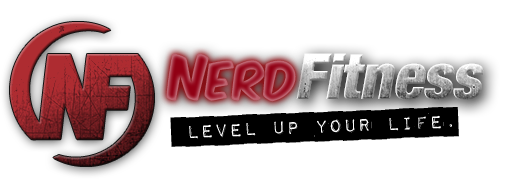

moonspirit
Members-
Posts
2 -
Joined
-
Last visited
About moonspirit
-
Rank
Newbie
-
I consider myself to be plant-based rather than vegan. I don't really have anything against killing animals for food; however, the food industry approach is cruel and torturous. And there are not enough resources to support the current level of per capita meat consumption if it were all converted to sane and humane practices. tldr; being a hipster meat-eater is not going to save the planet. However, my primary reason for being plant-based is health. The people in the long-lived Blue Zones eat 90-98% plant-based. Meat/dairy is either a very occasional treat or a bit of flavor added to their staple foods. There is research linking high consumption of animal products to all sorts of cancer. Eating meat puts you at risk for cardiovascular disease. http://science.sciencemag.org/content/361/6399/eaam5324 I personally believe that Paleo is a step in the right direction for most Americans. It's great to get people off of processed foods. It is supported for weight loss. But recently there have been studies that it is not good for your longterm health. https://www.bluezones.com/2018/09/news-study-finds-low-carb-or-keto-diets-could-lead-to-shorter-lifespan/ And there have yet to be studies proving any benefit except weight loss. https://daa.asn.au/smart-eating-for-you/smart-eating-fast-facts/healthy-eating/the-low-down-on-paleo-welcome-to-our-three-part-series-on-the-palaeolithic-diet/ It is basically Atkins + veggies, and the Atkins diet is known to be bad for your health long-term. Yet their ideology actively prevents people from finding the benefits of a healthier, plant-based diet. Just look at how you can't get beyond level 5 here without giving up legumes. Their prohibition of beans and whole-food carbs is nonsensical - those have been part of traditional human diets throughout history, probably even into the paleolithic. Archeologists/anthropologists have debunked the whole line of Paleo reasoning. https://www.drcarney.com/blog/entry/anthropologist-debunks-paleo-diet https://www.scientificamerican.com/article/why-paleo-diet-half-baked-how-hunter-gatherer-really-eat/ It is disturbing to me that the paleo diet is being supported by this and other wellness sites as the ideal way to eat. It is not even close. Unfortunately, it makes me wonder what else the "experts" are getting wrong about health.
-

Should I be avoiding grains/ beans/ legumes or not?
moonspirit replied to skip-tracer's topic in Nutrition
I'm glad to see Joel Fuhrman's Nutritarian diet referenced here. I think it is about as close as one can come to a paleo vegan diet, and I personally think it's better. One thing that paleo people leave out of the conversation (most likely due to not knowing it) is that eating larger amounts of animal protein has been linked to many kinds of cancer. Additionally, recent studies on keto and paleo people have shown that they have more risk factors for cardiovascular problems than they should if their diet was truly a health wonder. This possibly could be that most are simply not eating enough vegetables. Or it could be that they are eating too many animal products. I believe that it is possible to healthfully include animal products in one's diet, but not to the extent that paleo recommends. It's basically Atkins with veggies, and many omit the veggies. I'm posting this because the "nutrition" part of the program is a stumbling block for me as I am considering joining. I don't want to be getting messages that I need to eat meat or stop eating beans. I already do not eat processed carbs or oils. On rare special occasions, I will eat meat in social settings (eg. a nice restaurant that has uninspiring or absent vegan options or Thanksgiving, etc. at someone else's house), but for the most part I am 100% plant-based. I agree with others that cutting dairy has been the biggest game-changer for me, which is sad because I love(d) cheese. But we gotta do what we gotta do. I would love to see a Nutritarian track as an option. I did extremely low-fat vegan (eg. Forks Over Knives, McDougall) for about 5 months and lost 30+ lbs, without any additional exercise. I was probably actually exercising less, since I started school a couple of months into it. I still have a few pounds left to lose, but I am no longer in the "overweight" category, and I look about 10 years younger than I am. I'm upping my game now with the Nutritarian thing, and also want to start building muscle, now that I have more energy. I'm 52 years old and I want to keep up with younger people, since I still have a lot left to accomplish in my life. How essential to the program is following the nutrition module to the end? I'm probably already to the "level 5" that UniqueMonique reported, and I too have no interest in giving up legumes. Is it a deal-breaker? Thanks!
